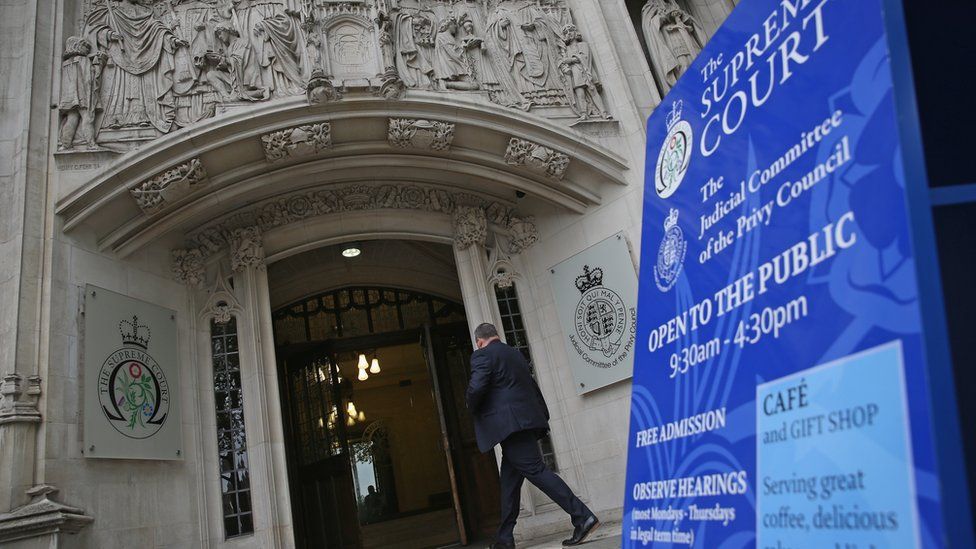Brexit: UK seeks 'close co-operation' on legal disputes deal
- Published
- comments

The UK is calling for "close co-operation" with the EU to resolve cross-border legal disputes after Brexit.
An agreement will be needed on how divorces, commercial disputes and consumer claims that span multiple countries are handled.
Currently EU regulations specify how the appropriate court is chosen.
Lawyers have warned that clarity will be needed once the UK has left the organisation in March 2019.
In the latest in a series of papers setting out its Brexit negotiating plans, the government says disputes need to be resolved "in a clear and sensible way", saying it is determined to agree new arrangements.
Justice Secretary David Lidington told BBC Radio 4's Today programme more people than ever before were "living their lives across borders".
A "good, effective system of EU law" was currently in operation to decide which law was used, but this would no longer apply in the UK after Brexit, he said.
Giving examples of cases that would be affected, he said the agreement would help avoid bureaucracy "if you are a German wife divorcing a British husband, if you are a British parent whose kids have been taken to Greece, if you are a Swede who's bought from a British company online and think you've been diddled in the deal".
Papers 'a smokescreen'
The "future partnership paper on civil judicial cooperation" follows publications on the customs union, the Irish border and the trading of goods after Brexit.
A paper on the key issue of the role of the European Court of Justice is expected on Wednesday.
The publications are part of the UK government's attempts to persuade the EU to move the Brexit talks on to the next phase, which will include trade negotiations.
Brussels says this cannot happen until sufficient progress has been made on citizens' rights, the UK's "divorce bill" and the Northern Ireland border.
Labour accused the government of publishing "bland, non-committal papers as a smokescreen to mask their failure to make any meaningful progress" on the initial negotiations.
The EU has already published its own position paper on judicial co-operation.
Tuesday's paper from the UK side will promise to "build on the existing foundation of co-operation and respect for the rule of law" with the EU.
Legal centre 'threat'
It will propose a replacement for the UK's membership of the EU's judicial co-operation system, which sets out how cross-border disputes are handled.
The system decides which country's legal system takes the lead, and means member states respect each other's judgements.
Lawyers and MPs have warned that the UK's status as a "global legal centre" for commercial contracts could come under threat from rival countries unless clear arrangements are put in place for after Brexit.
Pro-EU campaign group Open Britain said the government had made an "appalling error" by ruling out a role for the European Court of Justice in regulating disputes.